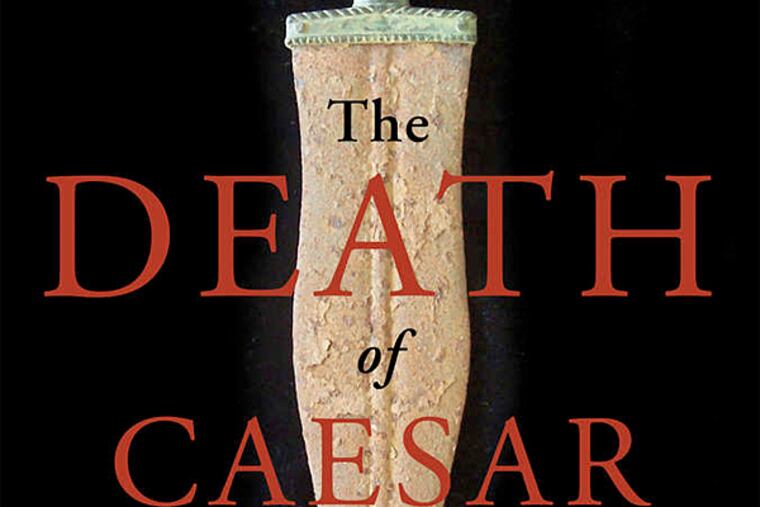Barry Strauss' storytelling drives 'Death of Caesar'
It took 60 conspirators guarded by as many as 100 gladiators to assassinate Julius Caesar in the middle of a Senate session. Of his 23 wounds, only one was fatal. Meanwhile, the rest of Rome - including Mark Antony, Cleopatra, and Cicero - was clueless.

The Death of Caesar
By Barry Strauss
Simon & Schuster.
352 pages. $27
nolead ends nolead begins
Reviewed by
Scott Manning
It took 60 conspirators guarded by as many as 100 gladiators to assassinate Julius Caesar in the middle of a Senate session. Of his 23 wounds, only one was fatal. Meanwhile, the rest of Rome - including Mark Antony, Cleopatra, and Cicero - was clueless.
As we approach the 2,059th anniversary of Caesar's death, the superb storytelling of Barry Strauss shows that the details of history's most famous assassination are just as fascinating as why it happened. Why did Brutus agree to the plot after Caesar pardoned him at the end of the civil war? Why did Decimus, a loyal general, suddenly turn on the dictator? Why March 15? Strauss addresses these questions in The Death of Caesar.
Chair of Cornell University's history department, Strauss draws on ancient narratives, letters, and archaeology to reconstruct this defining moment in Western history. Strauss combines honesty with expertise, admitting when the lack of reliable sources forces him to "exercise imagination, ingenuity, and caution." This builds credibility, as Strauss is clear when he is speaking from authority and when he is theorizing. He does not shy away from the latter, spending more than two pages guessing why Decimus joined the plot.
There is poetry to Strauss' prose: "Decimus was a liar, a flimflam man, a brazen and audacious snake. In short he was much like Caesar." Or, "Brilliant, eloquent, ambitious, patriotic, and a crank, Cato was an original." And "Conqueror, creator, and dictator, Caesar was great but at least in the last stages of his career, not wise."
Caesar's assassins could not overturn his policies - they'd lose the jobs he gave them. Nor could they take away benefits Caesar gave the people. And men like Antony and Octavian stirred up the passions of veterans who sought to keep what Caesar gave them. Caesar was dead, but Caesarism lived on.
Public opinion swayed from euphoria to high drama, culminating at Caesar's funeral, which "combined music, acting, a procession, a chorus, a eulogy, props, a funeral pyre to rival a Gallic chieftain's, and finally, a riot." Antony's funeral oration stirred the people into riot.
The build-up to the funeral is so intense that readers, left breathless at the apex, may not have patience for the denouement, which drags on for 50 more pages. But it is needed to wrap up the killings of all known assassins over the following 14 years. The Death of Caesar provides a fresh look at a well-trodden event, with storytelling sure to inspire awe.